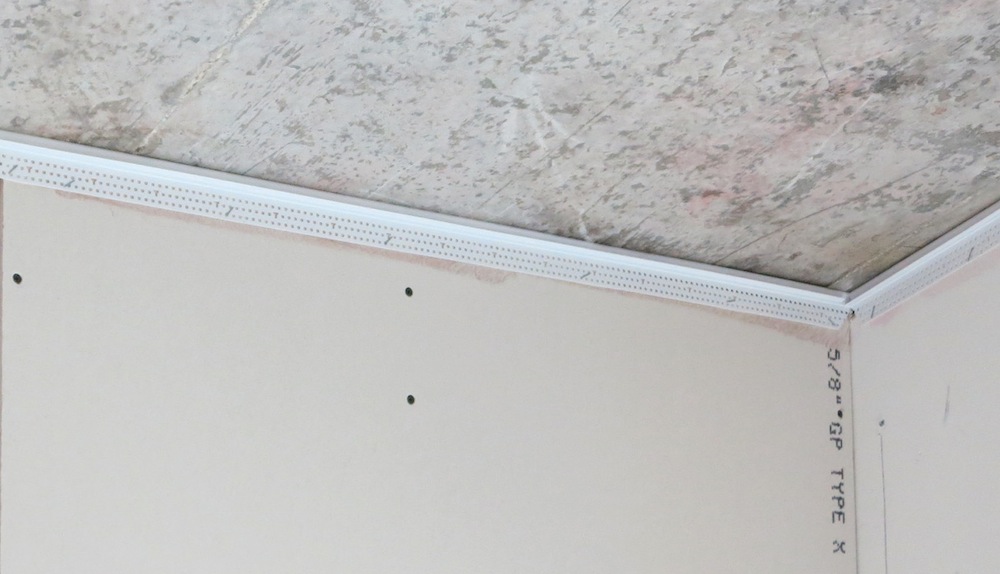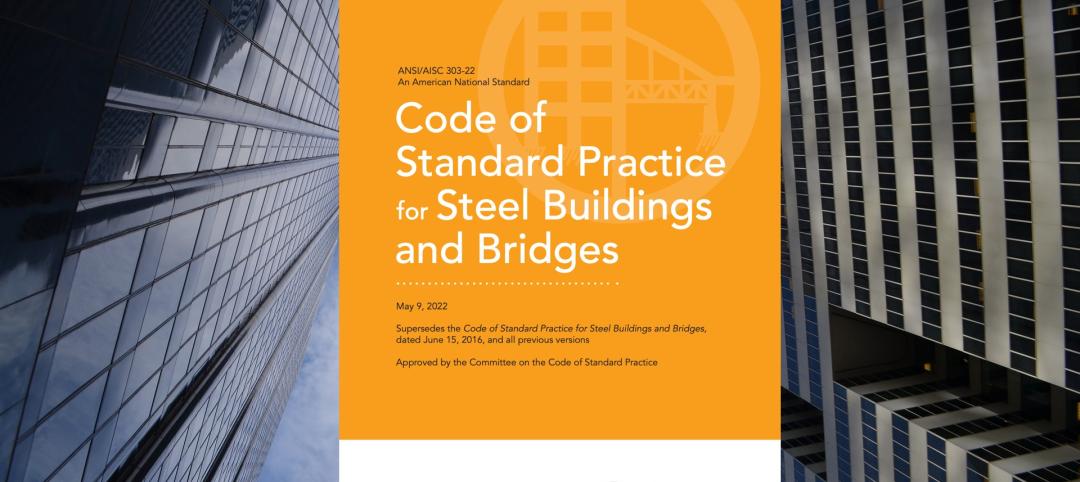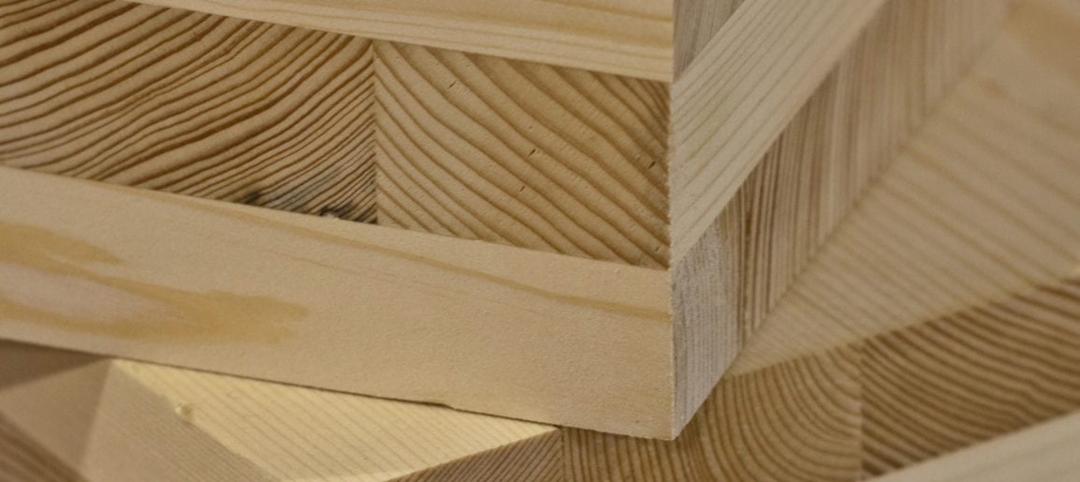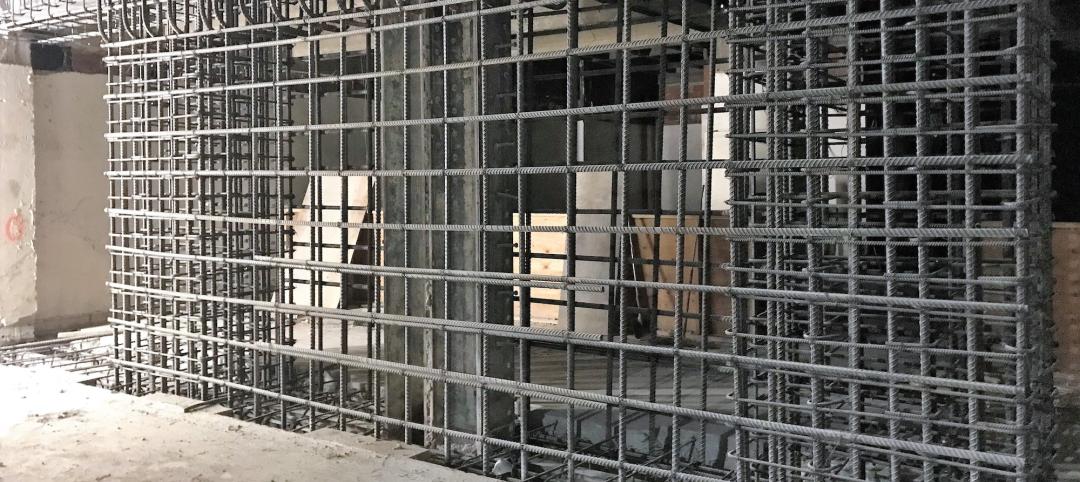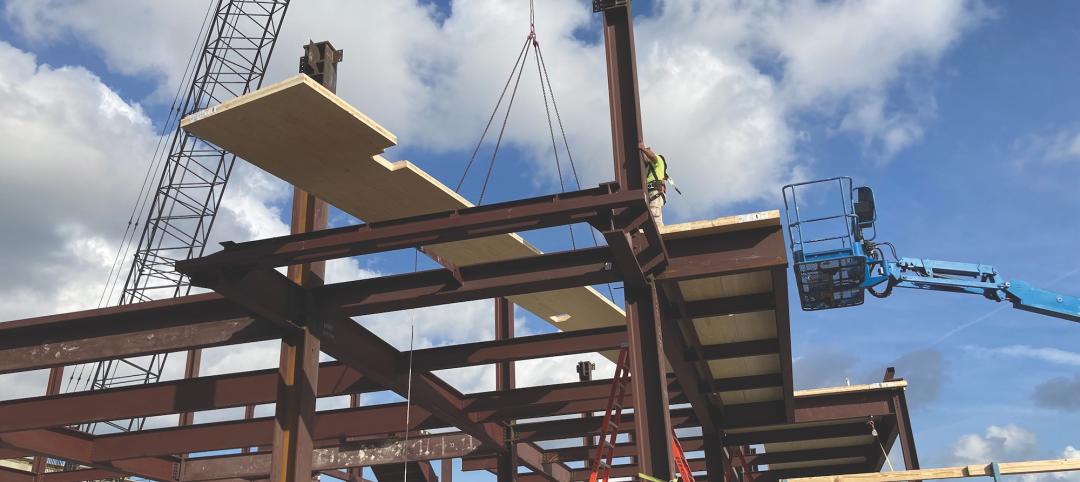The problems resulting from building deflection have likely troubled builders since the very first multistory building. Deflection is the bending of joists, trusses or rafters associated with overloaded structures. Typically, deflection causes unsightly cracks in the drywall along the inside corners where the wall meets the ceiling. Over time, deflection can worsen causing visual concerns, additional maintenance costs and structural problems.
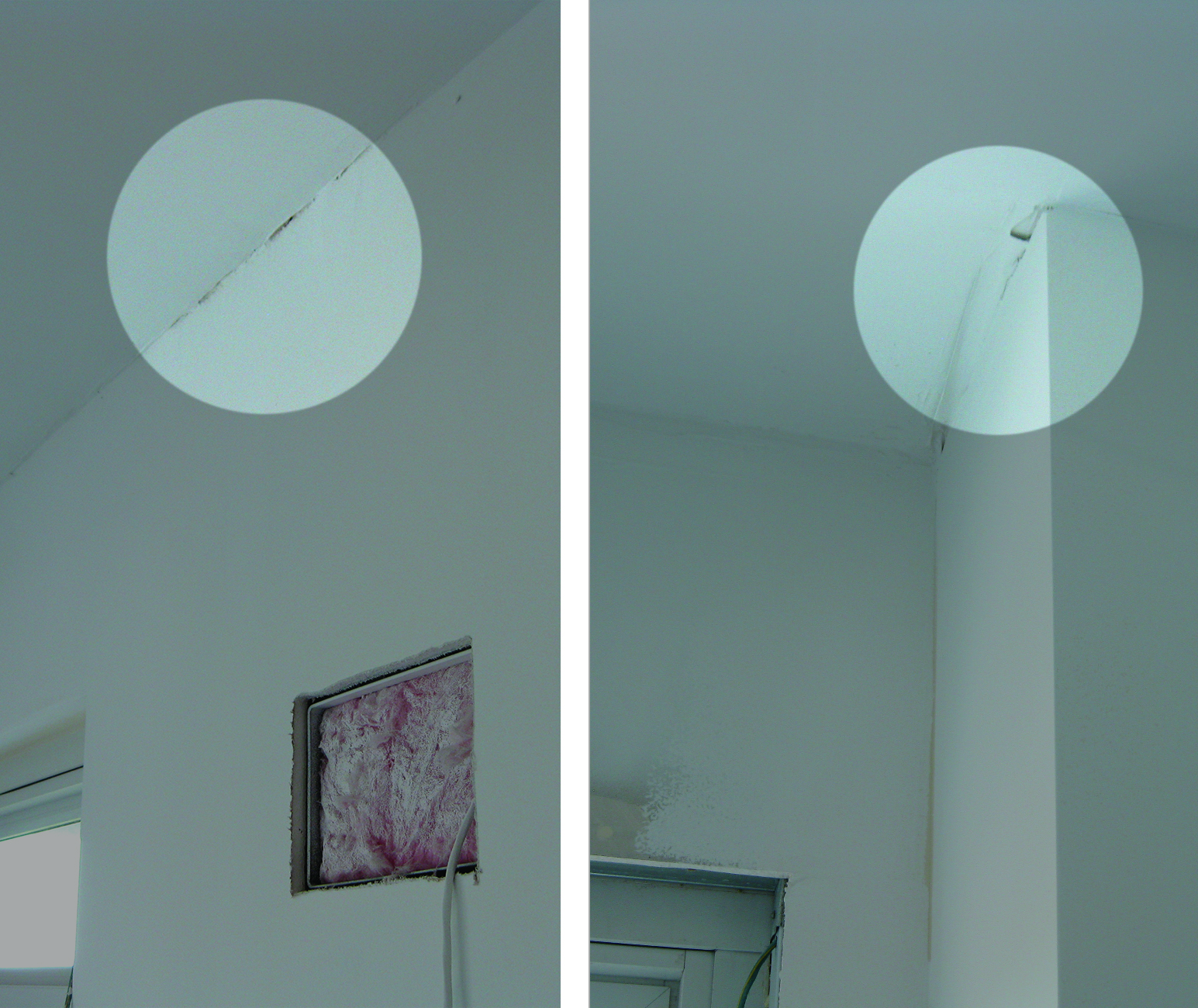 Typical damage caused by building deflection. Without Deflection Bead, building deflection is absorbed by the walls, causing cracking and blisters.
Typical damage caused by building deflection. Without Deflection Bead, building deflection is absorbed by the walls, causing cracking and blisters.
In Chicago, Denk & Roche Builders noticed that some previously constructed multistory buildings had inside corner cracking due to deflection. When commissioned to complete two 11-story retirement community buildings, Denk & Roche Builders wished to combat unsightly cosmetic damage and structural concerns caused by deflection. To prevent deflection damage, Denk & Roche Builders turned to Trim-Tex Wall Mounted Deflection Bead.
Trim-Tex Wall Mounted Deflection Bead features a coextruded flexible gasket that compresses under deflection pressure, preventing drywall cracks and blisters. To effectively combat deflection troubles, Deflection Bead is installed at the head of wall detail where it can withstand up to 7/16” of deflection movement. If the floor system springs back up the gasket expands back up, keeping it tight against the ceiling. Trim-Tex Deflection Bead protects the inside corner from cracks and pressure due to building deflection without compromising the design of the building. Deflection Bead also saves the building owner money by lowering building maintenance costs and reducing the likelihood of future deflection-related repairs.
For more information, visit www.trim-tex.com.
Related Stories
Sponsored | Resiliency | Dec 14, 2022
Flood protection: What building owners need to know to protect their properties
This course from Walter P Moore examines numerous flood protection approaches and building owner needs before delving into the flood protection process. Determining the flood resilience of a property can provide a good understanding of risk associated costs.
Steel Buildings | Dec 6, 2022
2022 AISC Code of Standard Practice for Steel Buildings and Bridges released
The American Institute of Steel Construction recently released an updated revision of one of its flagship standards, the Code of Standard Practice for Steel Buildings and Bridges (ANSI/AISC 303-22). The code was last updated in 2016. The latest version is available as a free download at aisc.org/2022code.
University Buildings | Dec 5, 2022
Florida Polytechnic University unveils its Applied Research Center, furthering its mission to provide STEM education
In Lakeland, Fla., located between Orlando and Tampa, Florida Polytechnic University unveiled its new Applied Research Center (ARC). Designed by HOK and built by Skanska, the 90,000-sf academic building houses research and teaching laboratories, student design spaces, conference rooms, and faculty offices—furthering the school’s science, technology, engineering, and mathematics (STEM) mission.
Mass Timber | Dec 1, 2022
Cross laminated timber market forecast to more than triple by end of decade
Cross laminated timber (CLT) is gaining acceptance as an eco-friendly building material, a trend that will propel its growth through the end of the 2020s. The CLT market is projected to more than triple from $1.11 billion in 2021 to $3.72 billion by 2030, according to a report from Polaris Market Research.
75 Top Building Products | Nov 30, 2022
75 top building products for 2022
Each year, the Building Design+Construction editorial team evaluates the vast universe of new and updated products, materials, and systems for the U.S. building design and construction market. The best-of-the-best products make up our annual 75 Top Products report.
Seismic Design | Nov 16, 2022
SPC-4D: 7 reasons California hospital building owners should act now to meet seismic compliance
Seismic compliance with the applicable California building codes is onerous and disruptive for building owners, especially for a building in the heavily regulated sector of healthcare. Owners of older buildings that house acute care services have a big deadline on the horizon—Jan. 1, 2030, the cutoff date to upgrade their buildings to SPC-4D.
Wood | Nov 16, 2022
5 steps to using mass timber in multifamily housing
A design-assist approach can provide the most effective delivery method for multifamily housing projects using mass timber as the primary building element.
University Buildings | Nov 13, 2022
University of Washington opens mass timber business school building
Founders Hall at the University of Washington Foster School of Business, the first mass timber building at Seattle campus of Univ. of Washington, was recently completed. The 84,800-sf building creates a new hub for community, entrepreneurship, and innovation, according the project’s design architect LMN Architects.
Sponsored | Steel Buildings | Nov 7, 2022
Steel structures offer faster path to climate benefits
Faster delivery of buildings isn’t always associated with sustainability benefits or long-term value, but things are changing. An instructive case is in the development of steel structures that not only allow speedier erection times, but also can reduce embodied carbon and create durable, highly resilient building approaches.
Building Materials | Nov 2, 2022
Design for Freedom: Ending slavery and child labor in the global building materials sector
Sharon Prince, Founder and CEO of Grace Farms and Design for Freedom, discusses DFF's report on slavery and enforced child labor in building products and materials.


